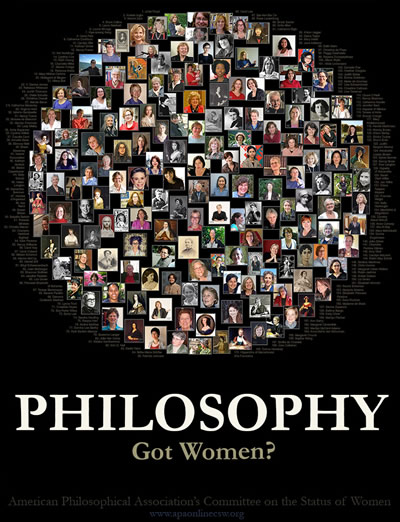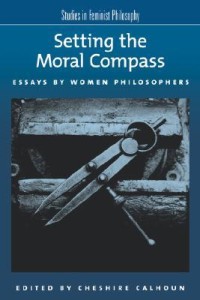Women & Philosophy

Women continue to be significantly under-represented in philosophy. They constitute roughly 27% of philosophy faculty and that number has changed very little since the 1970s when there was a significant upswing in the employment of women philosophers. I speculate on the relation between the low percentage of professional female philosophers and what is happening at the undergraduate level in “The Undergraduate Pipeline Problem”. In a more recent essay, “Precluded Interests,” I examine factors that may be at work in undergraduate women’s selection of other majors over philosophy and offer some recommendations about how departments can make their presentation of the major more appealing to women undergraduates. I am convinced that the low representation of women in philosophy is not just an equity issue but affects the content of philosophy itself. My anthology book project, Setting the Moral Compass: Essays by Women Moral Philosophers, was designed to make the difference that women make salient. It is standard practice in the profession to have a high representation of women authors in collections and in public symposia only when they are writing on gender and feminist philosophy. Setting the Moral Compass is designed as an intervention in that practice. The essays are in moral philosophy, and while some are from a feminist perspectives, many others are not. Click here for my APA Author-Greets-Critics discussion of the conception of the book and of women’s relation to philosophy.
Resources
There are now some excellent resources for thinking about women’s under-representation in philosophy and women’s experiences within the profession.
The APA has a tremendous amount of resources, including syllabi, articles, links to blogs and programs, and data on the profession. Sally Haslanger’s Women in Philosophy Taskforce also has a good resource page.
Singing in the Fire: Stories of Women in Philosophy, edited by Linda Martin Alcoff, contains biographical stories of women’s experience in philosophy by such noteworthy philosophers as Claudia Card, Alison Jaggar, and Martha Nussbaum. The blog What’s It Like to be a Woman in Philosophy contains sobering stories about women faculty and students’ current experiences in philosophy.
The APA and Women
The American Philosophical Association has a Committee on the Status of Women that regularly publishes the APA Newsletter on Feminism and Philosophy and that maintains an excellent and informative website. They have put together a great series of posters of contemporary women philosophers. The APA has statements on Nondiscrimination and on Sexual Harassment, and is currently working on implementing around 100 recommendations from the Task force on Diversity and Inclusion. The APA has also provided support to the Diversity in Philosophy conference which focuses on the under-representation of women and other marginalized groups in philosophy, the Philosophy in an Inclusive Key Summer Institute, and annually awards two large grants for diversity projects.
